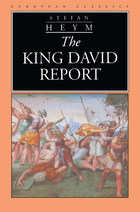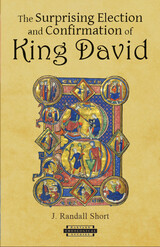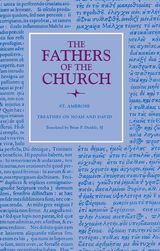
Written by one of Germany's most acclaimed dissident authors, The King David Report is both an analysis of the writer's obligations to truth, and an astute satire on the workings of history and politics in a totalitarian state.

Some of the best-known Biblical episodes are found in the story of David’s rise to kingship in First and Second Samuel. Why was this series of stories included in the Bible? An answer that has become increasingly popular is that this narrative should be interpreted as the “apology of David,” that is, the personal justification of King David against charges that he illegitimately usurped Saul’s throne. Comparisons between “the History of David’s Rise” and the Hittite “Apology of Hattušili,” in particular, appear to support this view that the Biblical account belongs to the genre of ancient Near Eastern royal apology.
Having presented this approach, Randall Short argues that the Biblical account has less in common with the Hittite apology than scholars have asserted, and he demonstrates how interpretive assumptions about the historical reality behind the text inform the meaning that these scholars discern in the text. His central contention is that this story should not be interpreted as the personal exoneration of David composed to win over suspicious readers. Rather, composed for faithful readers represented by David, the story depicts the dramatic confirmation of David’s surprising election through his gradual emergence as the beloved son of Jesse, Saul, all Israel, and yhwh Himself.

The first treatise presents Noah as a model just man, as Ambrose pairs the literal and the higher or spiritual meaning of the Genesis flood narrative to address topics ranging from the Genesis narrative to Stoic ethics to the Incarnation. In his defense of David to the emperor Theodosius, Ambrose ties David’s sin and repentance to his own close reading of Psalm 51(50), David’s plea for himself in his famous “Miserere.” While the authenticity of the third treatise included in the volume, the Second Apology of David, has long been challenged, recent scholarship suggests that it transmits Ambrose’s own preaching, which applies the lessons of David’s life to the situation of gentile unbelievers, Jews, and the church; even if it is the work of a later imitator, the Second Apology is a compelling and systematic treatment of the David’s sin and repentance as relevant to Christian morality and doctrine.
The three treatises, previously unavailable in English translation, broaden our understanding of exegesis in the Latin West and our interpretation of Ambrose as preacher and exegete.
READERS
Browse our collection.
PUBLISHERS
See BiblioVault's publisher services.
STUDENT SERVICES
Files for college accessibility offices.
UChicago Accessibility Resources
home | accessibility | search | about | contact us
BiblioVault ® 2001 - 2024
The University of Chicago Press









